Air leaks in the ducts are a serious problem for any home. These leaks cut into the energy efficiency of the HVAC system, lead to an increase in HVAC repair needs, and harm indoor air quality. Perhaps the worst part about duct leaks is that they’re tricky to detect. The ducts in a home stay hidden from sight behind walls and in the attic.
Fixing leaking air ducts isn’t difficult for professionals like us. We use various duct sealing methods to locate the leaks and make the ductwork airtight once more. If you need your ducts sealed, we can take care of it. But how can you know if you need this service if you can’t see the ducts? We’ll look over the major signs that will warn you of leaky ductwork.

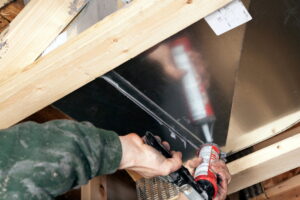
 There are several different types of indoor air quality solutions for homes, but the two most common are air filters and air purifiers. Air filters are effective at stopping larger particles moving through the HVAC system, such as dust, lint, and dander. Higher-strength filters can trap even smaller particles, but the stronger the filter, the more resistance it places against airflow. Most residential HVAC systems can’t tolerate filters this powerful, and this is where air purifiers are especially beneficial.
There are several different types of indoor air quality solutions for homes, but the two most common are air filters and air purifiers. Air filters are effective at stopping larger particles moving through the HVAC system, such as dust, lint, and dander. Higher-strength filters can trap even smaller particles, but the stronger the filter, the more resistance it places against airflow. Most residential HVAC systems can’t tolerate filters this powerful, and this is where air purifiers are especially beneficial. 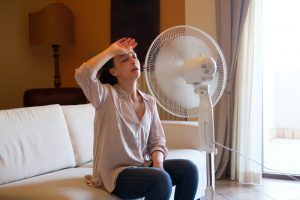 Late summer is often when the worst heat strikes. It also is when humidity tends to rise and make the heat feel far worse, as well as cause a spectrum of other problems (mold growth, wood warping). If you are experiencing terrible humidity this end of summer, possibly worse than you’ve run into before, there are a few services you can look into to help with the problem. Below we’ll go over some of what may help you with getting humidity down to comfortable levels (approximately 45% relative humidity).
Late summer is often when the worst heat strikes. It also is when humidity tends to rise and make the heat feel far worse, as well as cause a spectrum of other problems (mold growth, wood warping). If you are experiencing terrible humidity this end of summer, possibly worse than you’ve run into before, there are a few services you can look into to help with the problem. Below we’ll go over some of what may help you with getting humidity down to comfortable levels (approximately 45% relative humidity).  Not only is duct sealing helpful, in situations of major duct leakage it’s a necessity. Going without it means paying more to heat and cool your house, creating extra strain on the HVAC system, a shorter life for the heater and AC, unhealthy and poor-smelling air in the house, and other problems.
Not only is duct sealing helpful, in situations of major duct leakage it’s a necessity. Going without it means paying more to heat and cool your house, creating extra strain on the HVAC system, a shorter life for the heater and AC, unhealthy and poor-smelling air in the house, and other problems.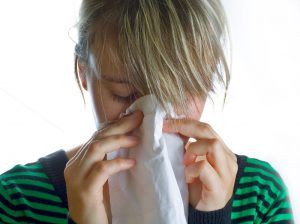 You’re concerned about the indoor air quality in your house, and that’s a good place to start. IAQ in homes is often remarkably poor, four or five times worse than that outdoors. But if you have air filters to improve the air quality, why aren’t you noticing any positive results? If you’re still experiencing the same dusty air, the same number of allergens, the same coughing fits, etc., then something must be wrong—but what?
You’re concerned about the indoor air quality in your house, and that’s a good place to start. IAQ in homes is often remarkably poor, four or five times worse than that outdoors. But if you have air filters to improve the air quality, why aren’t you noticing any positive results? If you’re still experiencing the same dusty air, the same number of allergens, the same coughing fits, etc., then something must be wrong—but what?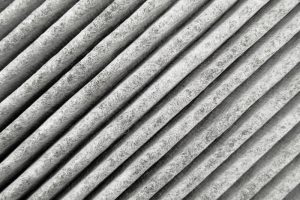 If you’re asking this question, you already know that your central air conditioning system has an air filter. We hope you also know that this filter must be changed routinely so it won’t become excessively clogged. We recommend changing the filter for a clean one every one to three months to prevent the blower in the HVAC system from straining too hard and wasting energy.
If you’re asking this question, you already know that your central air conditioning system has an air filter. We hope you also know that this filter must be changed routinely so it won’t become excessively clogged. We recommend changing the filter for a clean one every one to three months to prevent the blower in the HVAC system from straining too hard and wasting energy.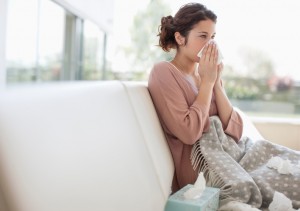 In our industry, the term “indoor air quality” can have a lot of different meanings. Poor indoor air quality can affect a home in a lot of different ways. Excess humidity can make you uncomfortable, particularly in warm weather, and a lack of humidity can dry out your skin and even the furniture in your home. Poor ventilation makes the air feel stale, and leaks in the ductwork could raise your bills.
In our industry, the term “indoor air quality” can have a lot of different meanings. Poor indoor air quality can affect a home in a lot of different ways. Excess humidity can make you uncomfortable, particularly in warm weather, and a lack of humidity can dry out your skin and even the furniture in your home. Poor ventilation makes the air feel stale, and leaks in the ductwork could raise your bills.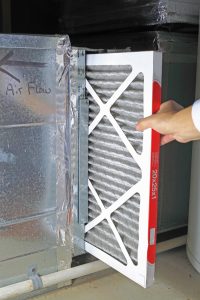 Hopefully, you know by now that your central air conditioner has a filter that you should be changing regularly. (And if you don’t,
Hopefully, you know by now that your central air conditioner has a filter that you should be changing regularly. (And if you don’t,